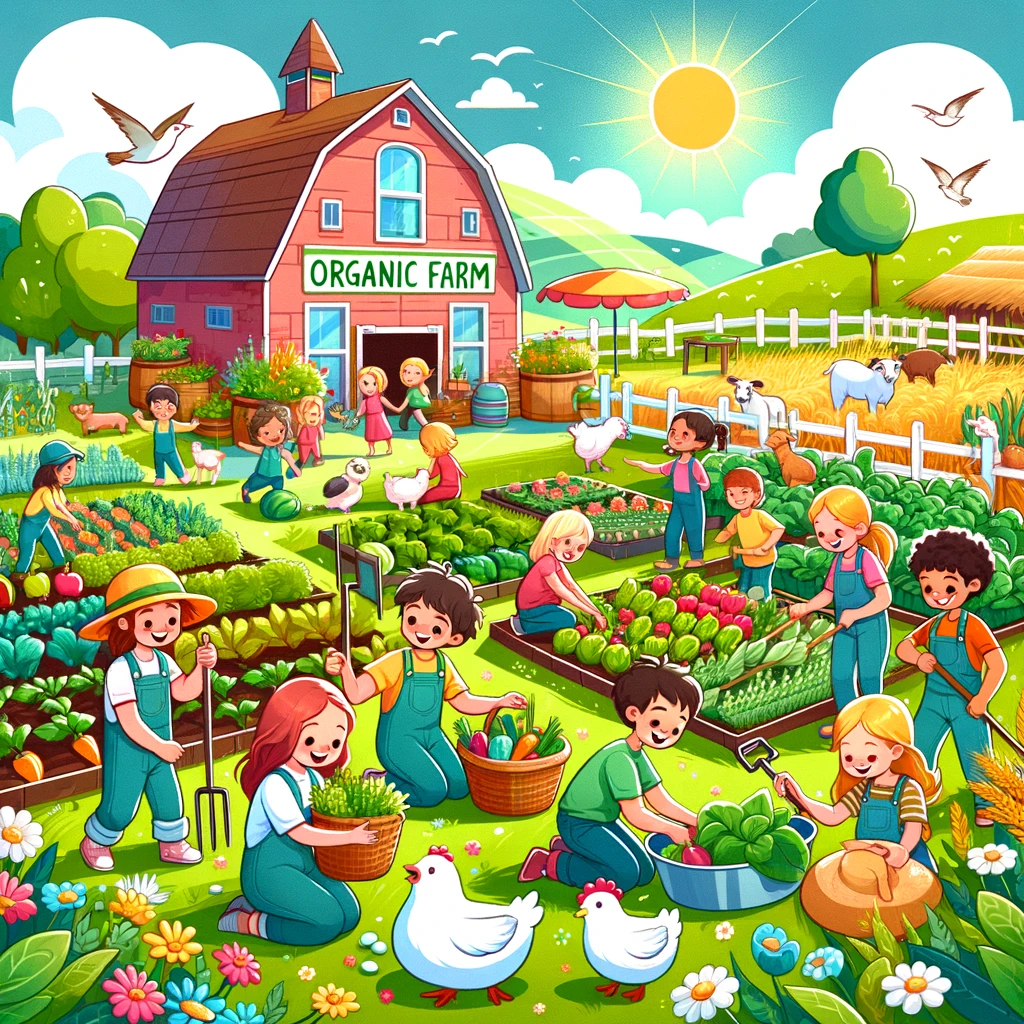
A Practical Guide to Organizing a Child’s Farm Visit
Taking children on an organic farm visit is more than just an enjoyable day out; it’s a crucial educational opportunity. By experiencing farming firsthand, children can gain insights into agriculture, sustainability, and the importance of caring for the environment. This blog post offers a comprehensive guide on organizing a fulfilling and educational farm adventure for kids.
The Value of an Organic Farm Adventure
Organic farms provide a unique learning environment that underscores eco-friendly farming practices and promotes a healthier lifestyle. During a visit to an organic farm, children can learn about:
Organic Farming Essentials: Understanding how food is cultivated without synthetic chemicals.
Plant Growth Cycles: Observing the complete growth stages of plants, from seeding to harvesting.
Caring for Farm Animals: Learning about the ethical treatment and management of farm animals.
Ecosystem Biodiversity: Exploring how diverse plant and animal life supports a robust ecosystem.
Organizing the Farm Tour
Farm Selection
Choose a farm that adheres to strict organic standards and offers structured educational tours tailored for children. Ensure the farm is safe, with appropriate facilities like clean restrooms, safe drinking water, and areas to rest and eat.
Preparing for the Visit
Informative Pre-Trip Materials: Share educational videos or pamphlets about farming with children and parents ahead of the visit.
Safety Briefing: Review important safety rules related to farm activities, especially around animals and machinery.
Checklist of Essentials: Remind participants to wear suitable clothing for outdoor activities, and to bring sun hats, sunscreen, and water bottles.
Day of the Visit
Tour and Activities
Farm Walkthrough: Explore different areas of the farm, discussing the organic farming techniques used and the types of crops grown.
Animal Interactions: Allow children to feed animals under supervision, learning about their care and importance to the farm ecosystem.
Hands-on Planting: Engage children in planting seeds or transplanting seedlings, highlighting the soil’s role in plant nutrition.
Educational Workshops
Harvesting Session: Teach children the proper technique for harvesting crops, emphasizing the importance of gentle handling.
Soil and Compost Education: Show how compost is made from organic waste and used to enrich the soil.
Simple Cooking Demo: Prepare a basic snack using ingredients from the farm to demonstrate the farm-to-table process.
Reflection and Feedback
Interactive Discussion: Encourage children to share what they learned and their favorite parts of the visit.
Artistic Expression: Invite them to draw or write about their experiences.
Gather Feedback: Ask for input from parents and children to enhance future farm visits.
Advantages of the Farm Visit
Educational Value
Children who understand where their food comes from are more likely to appreciate it and make healthier eating choices. They also gain a practical understanding of ecological and sustainable farming practices.
Health Benefits
Participating in outdoor activities not only boosts physical health but also improves mental well-being through interaction with nature and animals.
Building Environmental Stewardship
Teaching children about sustainable practices at a young age fosters a lifelong respect and responsibility for the environment.
Closing Thoughts
A visit to an organic farm is an enriching experience that provides children with valuable lessons about nature, agriculture, and sustainability. This guide ensures that your farm visit is not only educational but also a memorable adventure that fosters curiosity and respect for the environment. With careful planning and a focus on interactive learning, children will leave with a deeper understanding of how their food is grown and why we must care for our planet.





[…] Farms provide a plethora of engaging activities for curious young minds to explore. Children can discover the wonders of nature through outdoor play and interactions with animals. ###Fruit and Vegetable Picking […]
[…] A Practical Guide to Organizing a Child’s Farm Visit […]